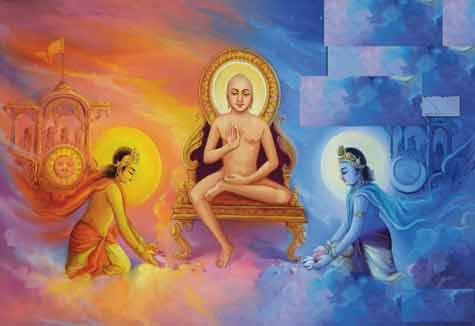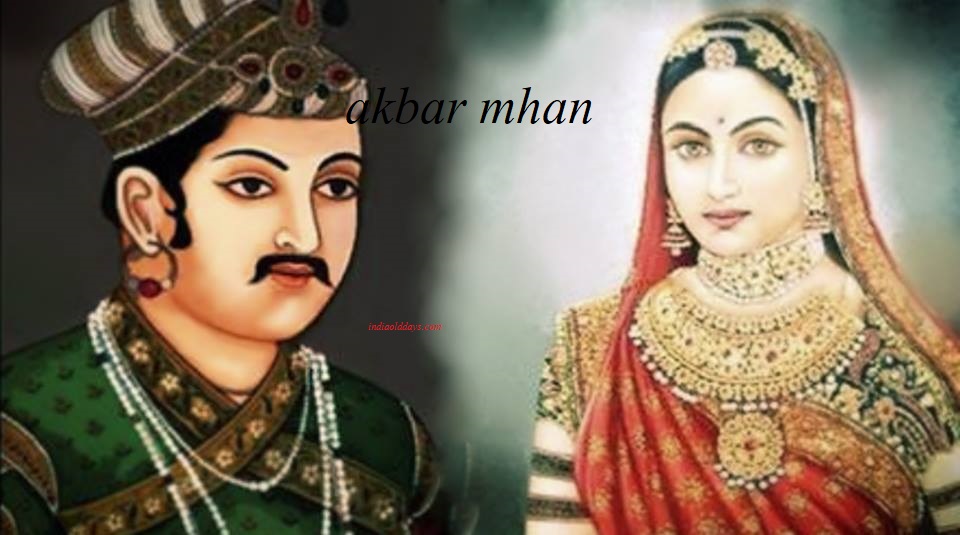Ancient IndiaJainism
Principles of Jainism
Other Important Facts-
The principles of Jainism are as follows:
Retirement Margie-
- Jainism is also a retrograde religion like Buddhism.
- Jainism is a Canter religion.
- This religion believes that the human body is transitory. Jain religion emphasizes on renunciation of hunger for getting relief from human suffering.
- Jain religion says that human beings should renounce wealth, family, world, etc and become a monk and make life by traveling.
Panchamahahavrat-
- Nonviolence – Jain saints – Sadhvi do not commit violence of any organism. Live the life with the promise of not even drinking small creatures.
- Truth- Jain sadhu and Sadhvi never lie, no matter how much difficulty comes to their life.
- Apirigrah – Jain monk does not have money with him. They do not carry any kind of movable or immovable property and do not collect anything.
- Ashta-Jain can not steal in religion and if someone steals it, then it is called a sinner.
- Brahmacharya- Jains and Sadhus have to follow Brahmacharya completely. Their rules are filled with vigilance. Whether for any kind of age for the sadhus, whether for any age and for the Sadhvi, for any age, it is prohibited for the tribal touch of any age.
Five Annuvrat-
There is a system of Five Annuvrat for the households in Jainism. There is no difficulty in adhering to them.
- Nonviolence Annuvrat
- TrTruth Anuwrt meaning
- Osteoarthritis
- Unbridled anabrata
- Brahmacharya Nirvrat
Creation-
- Jainism believes the world as eternal, ever, non-existent and real and existent.
God-
- Jainism does not accept the existence of God. The creator of the world is not God. Jain religion says that the world was before, it is still there, and will continue to be.
Nudity-
- 23rd Tirthankar Paswanvath had allowed his followers to wear cloth, but Mahavir Swamy ordered full nudity.
Karma-
- Jainism considers humans to be the determinant of their own destiny. Man himself is responsible for his own life. All his happiness and sorrow depend on his actions. The person will get the same reward as he does karma, and it will be reincarnated in the same way.
There are 8 kinds of actions of man-
- Knowledgeable
- Observable
- Drshnavarniy
- Mohniy
- Age karma
- Nomination
- Family
- Intercession
Triratna-
- To attain liberation it is necessary that a person should destroy the karmic of his previous birth and not store any kind of charity in this life. This goal is achieved by observing and practicing triratanas.
- The triad of Jainism – proper knowledge, samyak philosophy, proper conduct.
Proper knowledge –Knowledge of right and wrong is only due to knowledge.
Samyak Darshan – The only reverence for true knowledge is the only philosophy.
Proper character (behavior) – the prohibition of harmful actions and conduct of good works is the only character.
Five types of knowledge-
- Physiology
- Acoustics
- Terminology
- Psychic knowledge
- Kaivalya knowledge
Sadism-
- In the context of an object, seven types of judgments can be decided in a positive way-
- Is inexhaustible
- Not tolerated.
- Is not and is not.
- Is latent.
- Is indescribable and inexplicable.
- Is not indispensable and latent.
- Is indispensable and is not and is not latent.
18 Sin-
- There are 18 types of sins described in Jainism.
- Violence
- Octogenarian
- theft
- Incontinence
- Copulation
- Anger
- the Grudge
- Affair
- Mesothelioma
- Accusation
- Gossip
- Maya
- Greed
- Discord
- Anger
- Values
- Prninda
- Fib
Reference : https://www.indiaolddays.com/






